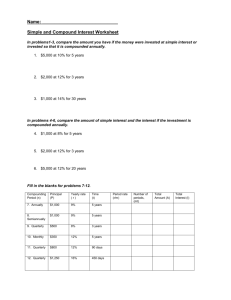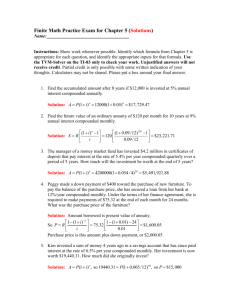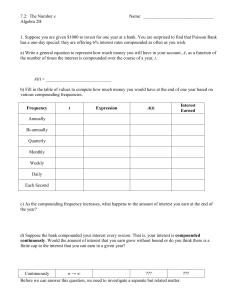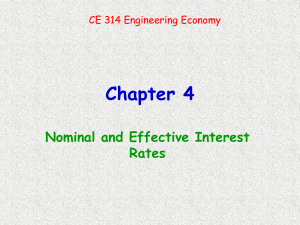Math 11AW Unit 6: Interest: Investing Money
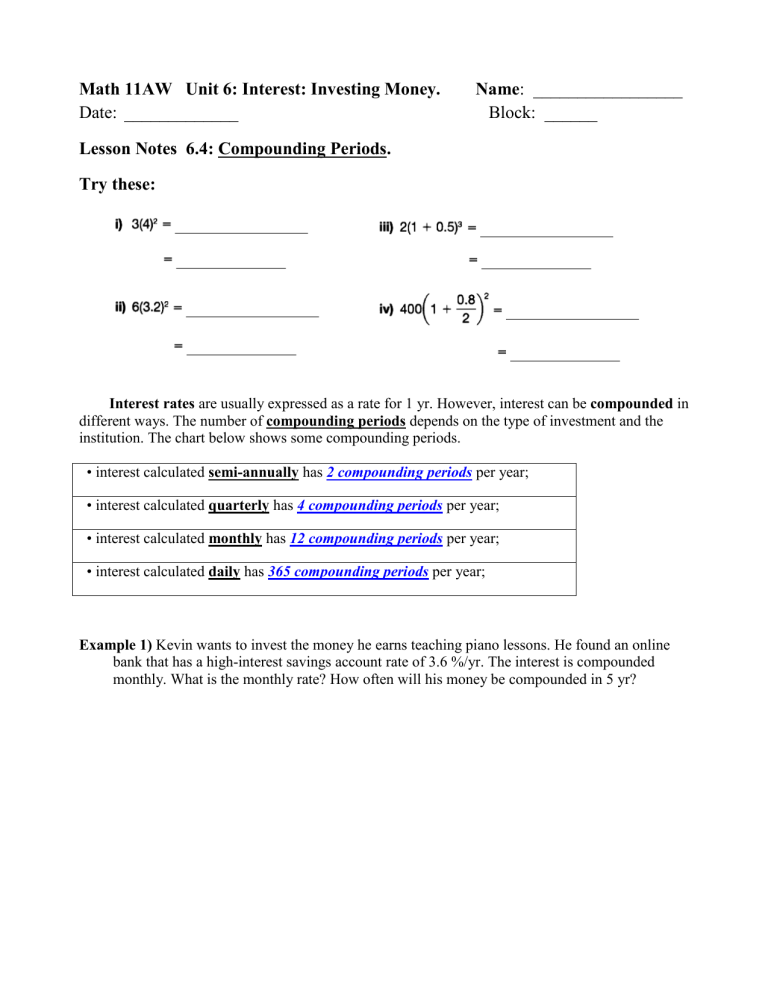
Math 11AW Unit 6: Interest: Investing Money. Name
: _________________
Date: _____________ Block: ______
Lesson Notes 6.4: Compounding Periods.
Try these:
Interest rates are usually expressed as a rate for 1 yr. However, interest can be compounded in different ways. The number of compounding periods depends on the type of investment and the institution. The chart below shows some compounding periods.
• interest calculated semi-annually has 2 compounding periods per year;
• interest calculated quarterly has 4 compounding periods per year;
• interest calculated monthly has 12 compounding periods per year;
• interest calculated daily has 365 compounding periods per year;
Example 1) Kevin wants to invest the money he earns teaching piano lessons. He found an online bank that has a high-interest savings account rate of 3.6 %/yr. The interest is compounded monthly. What is the monthly rate? How often will his money be compounded in 5 yr?
Example 2) What is the monthly rate if the annual rates are: a) 6 % b) 8 % c) 10 %
Example 3) What is the weekly rate if the annual rates are: a) 13 % b) 26 % c) 5.2 %
Example 4) What is the annual rate if the monthly rates are:
) 0.5% b) 0.2% c) 0.08%
Example 5 ) Sheryl manages a high-rise building in Vancouver. She invested $40000 from this year's condo fees for a reserve fund.
• She invested $20000 in an account that pays 1.8%/yr, compounded semi-annually.
• She invested $20000 in an account that pays 1.8%/yr, compounded daily.
How does the interest earned on each investment compare after 3 yr?
Math 11AW Unit 6: Interest: Investing Money. Name
: _________________
Date: _____________ Block: ______
Assignment 6.4: Compounding Periods.
1. An investment earns interest at 9%/yr. Calculate i and n.
2. Brynn is an assistant to an investment banker. Brynn is preparing a presentation on investments made at 3.2%/yr.
a) Complete the chart.
b) What frequency of compounding pays the most interest? How can you tell?
3. Haley invests $10 000 for 2 yr. The interest rate is 2.3%/yr, compounded daily.
How much money will Haley have?
4.
Kim invests $1600 at 3.2%/yr, compounded quarterly. How much money will Kim have after 18 mo?
5. Gwyneth's family sold their restaurant in Saskatoon. They plan to move to Victoria and open a bookstore in a year. During this year, they have $150 000 to invest.
• Gwyneth suggests a no-fee, high-interest savings account. The interest rate is 2.8%/yr, compounded semi-annually.
• Martin suggests a high-interest savings account with an interest rate of 2.8%/yr, compounded daily. The account has a $40 annual service fee.
a) Suppose they invest as Gwyneth suggests. What would be the value of the investment after 1 yr?
b) Suppose they invest as Martin suggests. What would be the value of the investment after 1 yr?
6
. $3850 at 8% for 3 years and compounded semi-annually.
7.
$4075 at 9% for 5 years and compounded quarterly.
8.
Calculate the final value of a deposit of $3000.00
invested at a rate of 3.60 % per annum for 4 years, with the following compounding periods:
a) semi-annual;
b) quarterly; and
c) monthly.
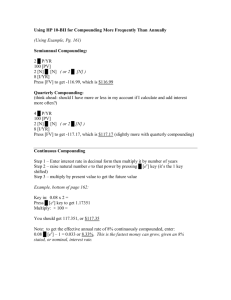
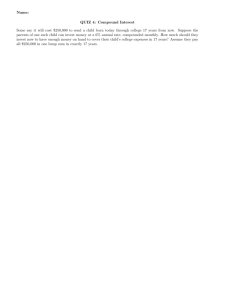
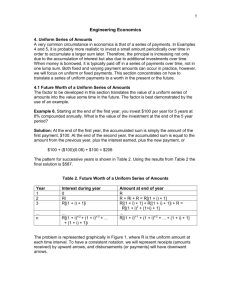
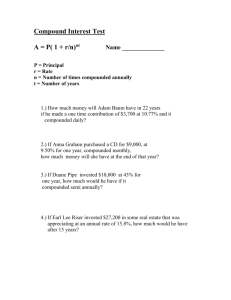
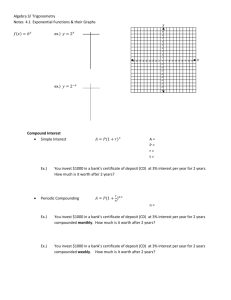
![Practice Quiz Compound Interest [with answers]](http://s3.studylib.net/store/data/008331665_1-e5f9ad7c540d78db3115f167e25be91a-300x300.png)
